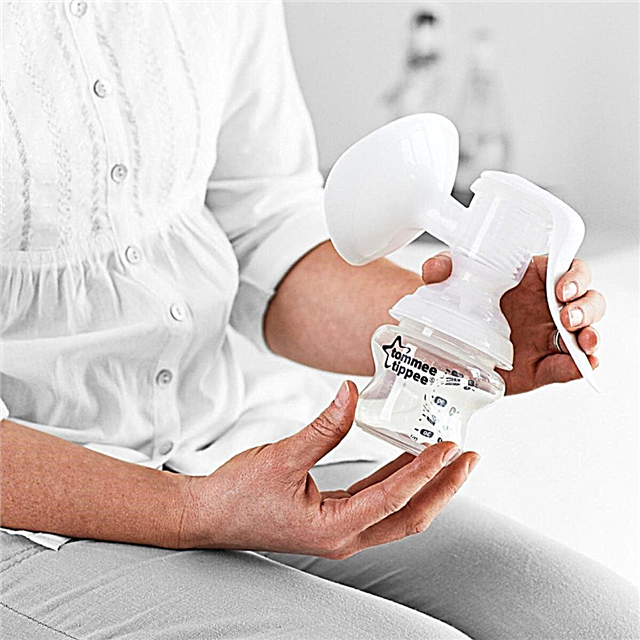
Frequent waking up at night in infants worries many young parents. However, having learned more about the peculiarities of the sleep of young children, it becomes clear to them why the baby sleeps in this way and when to expect the baby to sleep all night.
Sleep temperament
All babies are different - some are naturally calm, others are very energetic and active, it is difficult for others to restrain themselves and they quickly get irritated, the fourth are insecure and slow. And this cannot but affect children's sleep. But, if the parents take into account the temperament of the baby, they will be able to better understand the baby and influence the baby's sleep, as well as competently make up the laying rituals.
Depending on their temperament, some children know how to relax before falling asleep and fall asleep on their own, while others do not. Some of the children wake up from a wet diaper, while the sleep of other babies is not a hindrance. Taking into account the baby's sensitivity to extraneous sounds, temperature and other irritants, it will be easier to put the baby to bed at night.
Very active babies should choose a longer ritual of falling asleep so that the baby smoothly passes from a state of vigor to a desire to fall asleep. If a calm baby can fall asleep as soon as the mother turned off the light, it will not work with an active one. Since active babies become more energetic after feeding, it makes sense for them to have an earlier dinner.

At what age do they stop waking up at night?
This issue is resolved individually, since there are a lot of reasons for waking up in a baby, and each has their own. Newborn babies rarely sleep longer than 3-4 hours in a row, so you don't need to expect sleep from such a baby all night long. Very rarely, babies immediately after birth delight their parents with a long night's sleep, but this is rather an exception.
Many babies sleep longer at night from 6 months of age. If the daily regimen is set correctly, then they sleep without awakening for 5-6 hours, waking up in the morning for feeding. Parents who have endured a period of colic, various diseases, weaning from night feeds and teething will finally be able to sleep peacefully all night.

Why is the child waking up?
Most often, a newborn baby wakes up to eat, since breast milk is digested very quickly. However, in addition to hunger, young children have such problems that affect their sleep:
- Colic - this often interferes with sleep in infants younger than 3 months
- Teething - this cause of problems with night sleep appears after 3 months;
- Wet diaper;
- Runny nose;
- Very loud sounds;
- Hypertonicity of the arms and legs - the baby may wake up due to his own body movements;
- Neurological diseases.
It is noted that children who can fall asleep alone fall asleep faster when they wake up at night. If the baby is placed at night with a bottle or motion sickness, then the baby who wakes up at night will expect the same actions to help him fall asleep.

Changes in sleep patterns with age
The sleep of any person is divided into several types:
- Quick. He is active, therefore, during such a dream, parents notice how the baby smiles, grimaces or frowns, and his eyelids tremble. It is during such a dream that a person sees dreams, and the brain at this time processes the information that he received during the day. It is easiest to wake up during REM sleep.
- Slow. He is calm and deep. It is during such a dream that immunity is strengthened, the body grows and the person rests, and it is more difficult for him to wake up. NREM sleep is divided into 4 stages, among which there is a more superficial sleep and a deeper one.
REM sleep in a newborn baby takes about half of the time - out of 16 hours of sleep per day, about 8 children are in REM sleep. If the baby is premature, then REM sleep can account for up to 90% of the total sleep duration. That is why babies wake up so often.
Over time, the proportion of slow sleep increases and the baby begins to wake up less often. By the age of two, out of 13 hours of sleep per day, REM sleep is about 4.5 hours, and by the age of 14 - about 1 hour.

Adults
In adults, the duration of REM sleep is up to 20%, the rest of the time the person is in the phase of slow sleep. Since the sleep patterns of the parents are very different from that of the infant, this leads to lack of sleep. In addition, during the day, adults are often busy with various activities and do not have the opportunity to take a nap. And if the baby sleeps in a separate room, then the mother, who stands up to the baby, finally wakes up at night, which disrupts her sleep pattern.
Studies have shown that a mother awakened during REM sleep (and it most often happens in the early morning hours, when the baby wakes up to eat), the mother does not cope with everyday activities worse than during the day. It is more difficult for her to concentrate and prioritize things.
To avoid waking up during REM sleep, falling asleep earlier will help - so the mother can go through the REM sleep phase until the moment when she is awakened by the little one. Dad can also help here by replacing Mom in the morning feed so that her REM sleep is not interrupted every night.

Tips
- In order for the baby to be able to distinguish between daytime sleep and nighttime sleep, during the day it should be laid in another place. In this case, during the day you need to lay the baby with open windows (without curtains), and at night - in the dark.
- Help your baby get used to different sounds, then he will wake up less due to someone talking or steps.
- If the baby has "confused day and night", help him to return to normal routine. Avoid overexcitation in the evening, and while bathing before going to bed, add medicinal herbs to the water (if there are no allergies).
- It is extremely important for your baby to follow the same falling asleep ritual every day. Therefore, try to work out your own order of action and not break it.
- Laying the baby to sleep with the breast is very convenient for the mother, but this habit can prevent the baby from sleeping soundly. A child who wakes up at night cannot understand where her mother's breast has gone and is very upset. You can only re-lay it with the help of the chest. To avoid such problems, the breast should be taken from the mouth of the still not asleep baby when he has eaten.
- You need to try not to miss the time when the baby is already tired enough and wants to fall asleep. If you do not help the baby fall asleep, the child will overwork, fall asleep more difficult and sleep more restlessly.
- The correct microclimate in the room will contribute to a sound child's sleep. The room must be checked, and the humidity should be set within 50-60%.
- A positive family environment is also important for a good night's sleep. If the relationship between the parents has deteriorated, you should not expect a restful long sleep from the crumbs.



